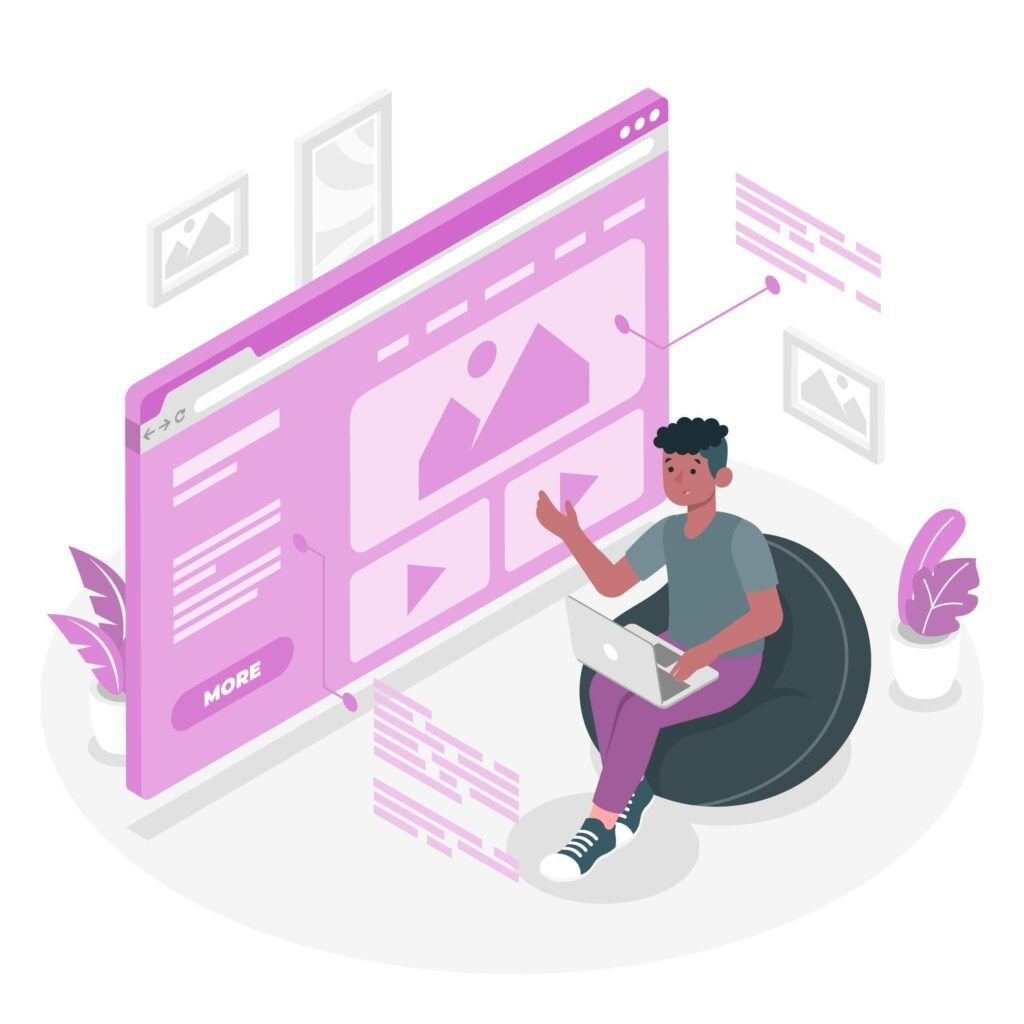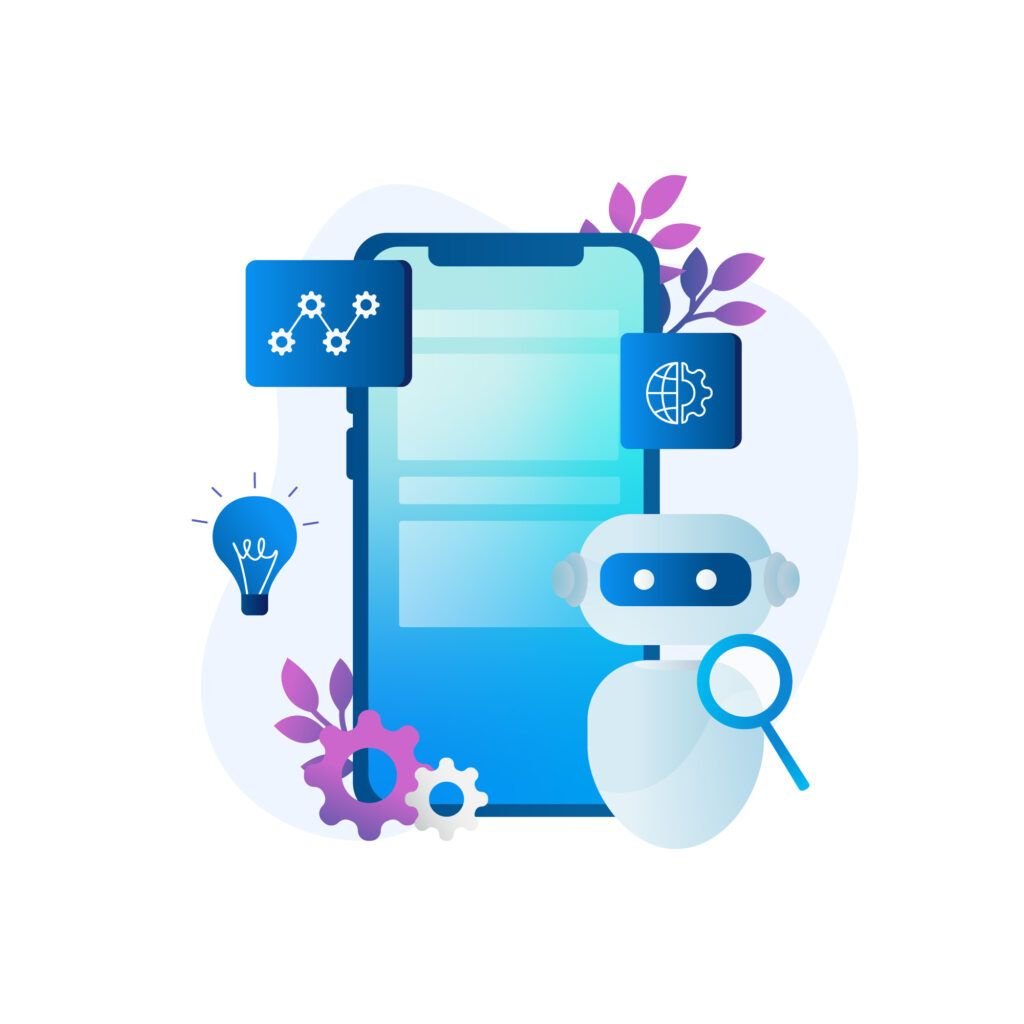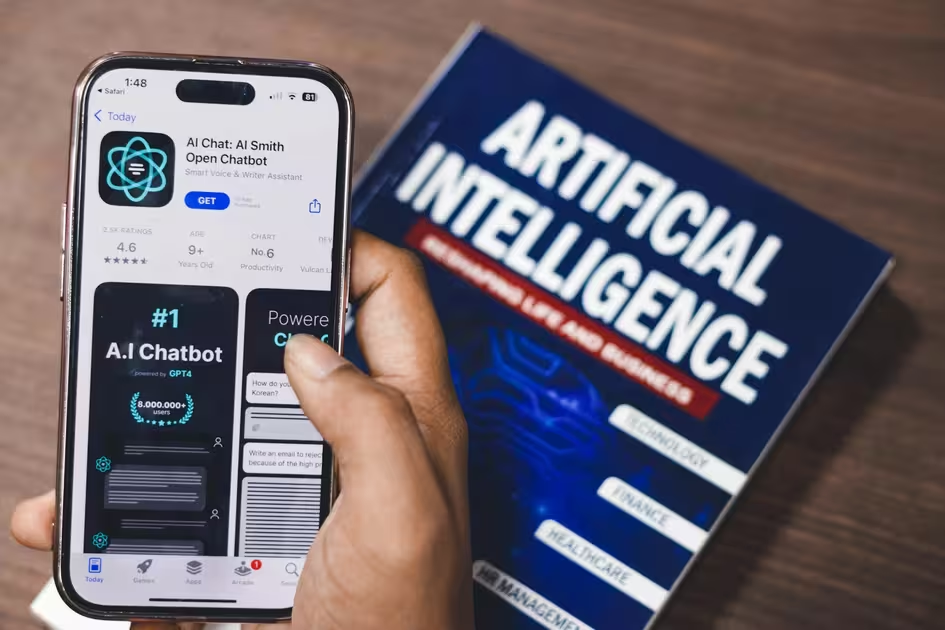Artificial intelligence (AI) is reshaping the digital landscape, and AI search engines are at the forefront of this transformation. Traditional search engines like Google have dominated the market for decades, the rise of AI-powered search engines, including Perplexity AI and ChatGPT Search, is challenging their supremacy. These AI-driven platforms promise more contextual, personalized, and real-time search results by leveraging advanced language models and AI overviews.
In this blog, we will explore how AI-powered search engines are redefining the search experience, their impact on search query processing, and whether Google can maintain its dominance in 2025.
The Evolution of Search Engines
Traditional Search Engines: How Google Works?
Google’s search algorithm has continuously evolved over the years. It ranks web pages based on multiple factors, such as:
- Keywords & Relevance – How well a page matches a search query.
- Backlinks & Authority – The number and quality of links pointing to a page.
- User Experience (UX) – Factors like page speed and mobile-friendliness.
- Content Quality – Google’s E-E-A-T principles (Experience, Expertise, Authoritativeness, Trustworthiness)
- Despite its efficiency, traditional search engines often struggle with user intent recognition and delivering precise, real-time answers. This is where AI-powered search engines step in.

The Rise of AI-Powered Search Engines
AI-driven search engines, such as Perplexity AI, ChatGPT Search, and Bing AI, are transforming search by leveraging artificial intelligence and natural language processing (NLP). Instead of simply returning a list of links, AI search models analyze large amounts of data to generate human-like responses.
Key Features of AI Search Engines:
- AI Overviews – Summarized, contextually relevant answers at the top of search results pages.
- Conversational Search – Users can refine their queries through dialogue.
- Real-Time Search Results – AI dynamically retrieves the most recent information.
- Personalized User Experience – AI tailors search results based on user preferences.
You may like this
- AI & Machine Learning best Breakthroughs: Transforming Healthcare, Education, and Automation in 2025
- Best Cyber Insurance Policies for Small Businesses in 2025: Top Coverage Options & Providers
- You Need Cyber Insurance Top 10 Shocking Cyber Attacks
How AI Search Engines Are Changing the Search Landscape?
1. AI Overviews: Replacing Traditional Results Pages?
AI search engines generate instant overviews based on a query, eliminating the need to scroll through multiple websites. Unlike traditional search results, which list webpages, AI-powered search compiles and synthesizes the most relevant information.
2. Improved Search Query Understanding
Traditional search engines often struggle with ambiguous or conversational queries. AI-powered search models analyze intent more effectively, leading to:
- Faster response times
- More accurate, context-aware answers
- Better natural language interactions

3. AI Models Enhancing Search Accuracy
Language models like GPT-4, Bard AI, and Claude are trained on billions of data points, allowing them to understand nuanced queries better than keyword-based search algorithms.
4. Personalized User Experiences
Unlike Google’s one-size-fits-all approach, AI search engines adapt to user behavior, refining search results based on previous interactions.
AI Search Engines vs. Google: A Head-to-Head Comparison
| Feature | Google Search | AI-Powered Search Engines (ChatGPT Search, Perplexity AI) |
|---|---|---|
| Search Method | Keyword-based indexing | AI-driven contextual search |
| Results Format | Web links & snippets | Conversational AI-generated responses |
| User Interface | Traditional search bar | Interactive, chatbot-like interface |
| Real-Time Information | Requires multiple searches | Instant synthesis of real-time data |
| Personalization | Limited | Highly personalized recommendations |
| Efficiency | Requires link exploration | Provides direct, concise answers |
Challenges and Limitations of AI Search Engines
Despite their advantages, AI-powered search engines face several challenges:
- Bias and Misinformation – AI models can sometimes generate biased or incorrect results due to flawed training data.
- Lack of Transparency – Unlike Google’s ranking system, AI-generated search results are not always transparent.
- Computational Costs – AI-powered search engines consume more processing power, making them expensive to operate.
- Limited Web Indexing – AI models don’t crawl the web as extensively as Google, potentially limiting search scope.
- Privacy Concerns – AI search engines may collect more user data than traditional search platforms.
The Future of Search: Will AI Search Engines Replace Google?
1. Google’s AI Adaptation: The Introduction of SGE (Search Generative Experience)
To combat the rise of AI search engines, Google has introduced Search Generative Experience (SGE), which integrates AI-generated summaries into search results.
2. Hybrid Search Models
In 2025, we may see a hybrid model, where AI search engines and traditional search platforms co-exist, offering both list-based results and AI-generated responses.
3. Industry Adoption & Monetization Challenges
Google’s ad-based revenue model depends on search traffic, making it challenging to transition to AI-driven models without losing revenue. AI-powered search engines will need to explore alternative monetization strategies.

4. The Role of AI in Search Beyond 2025
- Voice Search & Smart Assistants – AI-powered search will integrate with voice assistants for hands-free, real-time search.
- Augmented Reality (AR) Search – AI will power visual-based search queries using smart glasses and AR interfaces.
- Fully Conversational Search Experiences – Future AI models will engage users in real-time dialogues for more refined results.
AI-powered search engines like Perplexity AI, ChatGPT Search, and Bing AI are changing the way users interact with information. With advanced language models, personalized experiences, and AI-generated overviews, they provide a compelling alternative to traditional search engines like Google.
However, challenges such as bias, data transparency, and monetization hurdles must be addressed before AI search engines can fully replace Google. In 2025 and beyond, we are likely to witness a convergence of AI-driven search and traditional search engines, ultimately shaping a more intelligent, real-time, and user-friendly search experience.
Will AI search engines replace Google entirely? Only time will tell, but one thing is certain—the future of search is AI-powered. AI-powered search engines like Perplexity AI and ChatGPT Search are revolutionizing how users find information, but Google remains a key player. As AI models improve in real-time indexing, accuracy, and personalization, businesses and SEO experts must adapt to the new era of AI-driven search to stay ahead in 2025 and beyond.
Not entirely. While AI search engines provide fast, interactive answers, they still rely on traditional websites, databases, and human-generated content. The future of search may involve a blended approach, where AI-driven search engines coexist with traditional search engines like Google.
Is Google Losing to AI Chatbots in 2025?
The search landscape is undergoing a major transformation as AI-driven search engines like Perplexity AI and ChatGPT Search challenge Google’s dominance. These AI-powered search engines provide conversational, real-time answers rather than traditional lists of links, revolutionizing the search experience.
Unlike Google, which relies on ranking web pages, AI-driven search tools process natural language queries and deliver personalized, context-aware results instantly. This shift is redefining user expectations, with many preferring AI-generated summaries over scrolling through multiple search result pages.
However, challenges remain. AI search engines need to overcome accuracy issues, improve source credibility, and handle complex queries effectively. Meanwhile, Google is integrating AI overviews into its search results to maintain its edge.
As AI models evolve, the future of search will likely be a hybrid approach—combining the best of AI-powered insights with traditional search methods. Will AI-driven search engines replace Google entirely, or will Google adapt to stay ahead? The battle for the future of search has just begun.
FAQs
What are AI-powered search engines, and how do they differ from Google?
AI-powered search engines like Perplexity AI and ChatGPT Search utilize artificial intelligence (AI) and natural language processing (NLP) to generate direct, conversational, and context-aware responses instead of showing traditional search results pages (SERPs). Unlike Google, which ranks web pages using an algorithm, AI-driven search engines provide AI-generated answers by summarizing large amounts of data in real-time.
Can AI-driven search engines replace Google in 2025?
While AI-powered search engines are rapidly evolving, Google remains dominant due to its vast database, advertising network, and strong indexing capabilities. However, AI models are improving and may disrupt traditional search habits by offering faster, more direct answers without requiring users to click multiple links. The future of search may involve a hybrid model combining AI-generated responses with conventional web search results.
What are the key advantages of AI-powered search engines?
- Faster results – AI delivers instant, conversational answers.Personalized search experiences – AI adapts responses based on user intent.
- No need to browse multiple pages – AI directly provides relevant insights.
- Better for complex queries – AI understands context and nuances better than keyword-based searches.
What challenges do AI-powered search engines face?
Data accuracy concerns – AI-generated responses may lack citations or rely on outdated information.Limited real-time indexing – Unlike Google, AI search engines don’t crawl and index the entire web.Advertising revenue impact – AI-driven search could disrupt Google’s ad-based business model.Potential biases – AI models learn from training data, which may contain inherent biases affecting search results.
How is Google responding to the rise of AI-powered search engines?
Google has introduced AI-driven features like Search Generative Experience (SGE) and Bard AI to enhance its search capabilities. By integrating machine learning, AI overviews, and personalized AI models, Google aims to stay competitive and prevent users from shifting entirely to AI chatbots like Perplexity AI and ChatGPT Search.
Will AI search engines improve SEO strategies?
.Yes, AI search engines are changing SEO by prioritizing content quality over keyword stuffing. Websites will need to focus on authoritative, well-structured, and contextually rich content to be referenced in AI-generated search results. Featured snippets, structured data, and AI-optimized content will become essential for ranking in AI-driven searches.
Should businesses optimize for AI-driven search engines in 2025?
Absolutely! Businesses should start optimizing for AI search engines by:
- Creating high-quality, well-structured content that AI models can easily process.
- Using structured data and schema markup for better AI recognition.
- Enhancing brand authority with backlinks and trustworthy sources.
- Focusing on conversational SEO to match AI-generated search queries.
Are AI-powered search engines better for real-time updates and breaking news?
Currently, Google outperforms AI-driven search engines in real-time indexing for breaking news and trending topics. However, AI models are rapidly evolving and integrating real-time sources to provide faster, more context-aware updates in the future.








